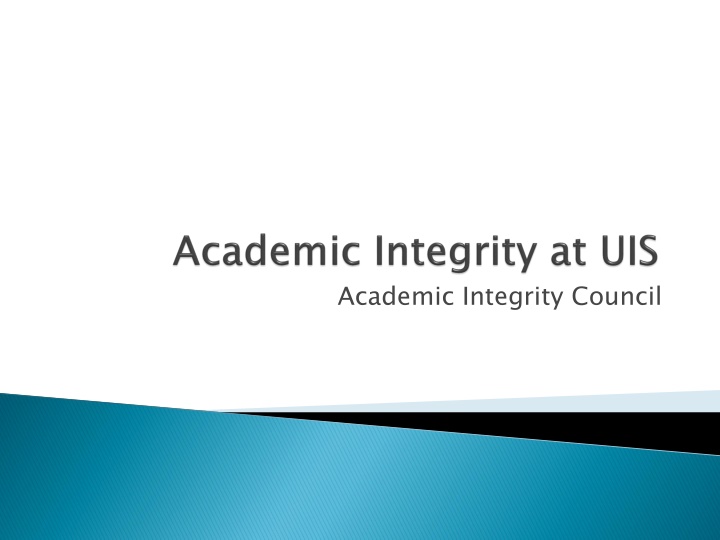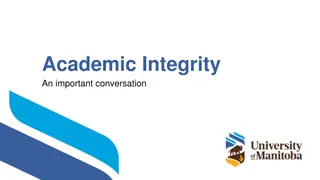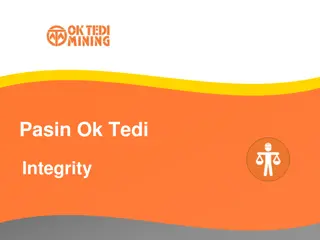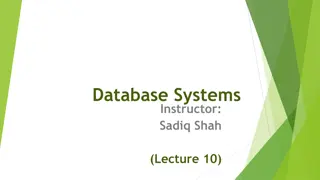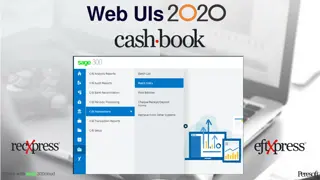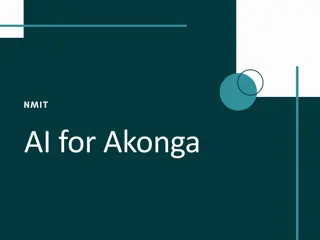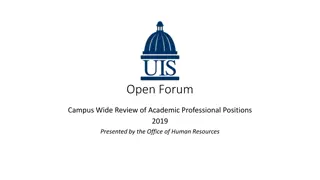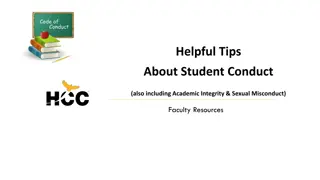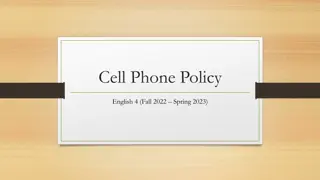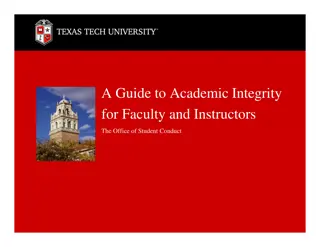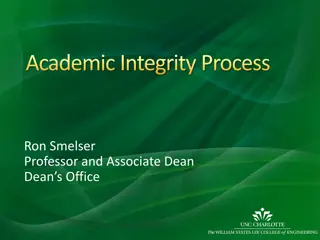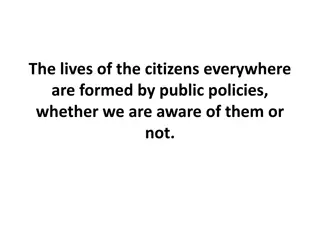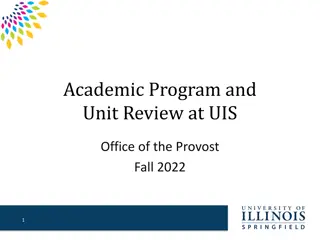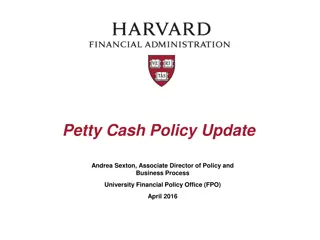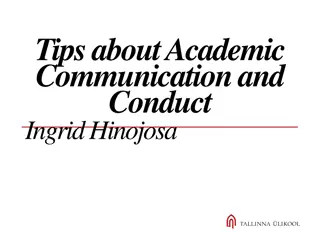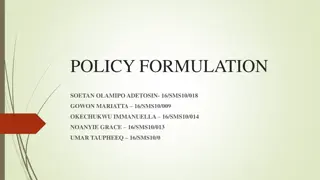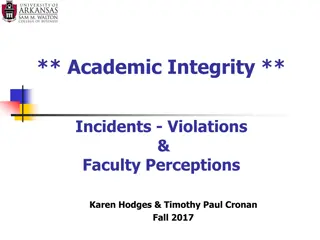Academic Integrity Policy at UIS - Guidelines and Procedures
The Academic Integrity Council at UIS ensures fair operation of hearing panels, reviews the policy implementation, and educates the community. It aims to protect the integrity of the academic environment and helps students develop integrity. Enforcement and effectiveness rely on faculty and departmental adherence. When suspecting violations, follow standard procedures and communicate with students maintaining composure.
Download Presentation

Please find below an Image/Link to download the presentation.
The content on the website is provided AS IS for your information and personal use only. It may not be sold, licensed, or shared on other websites without obtaining consent from the author.If you encounter any issues during the download, it is possible that the publisher has removed the file from their server.
You are allowed to download the files provided on this website for personal or commercial use, subject to the condition that they are used lawfully. All files are the property of their respective owners.
The content on the website is provided AS IS for your information and personal use only. It may not be sold, licensed, or shared on other websites without obtaining consent from the author.
E N D
Presentation Transcript
Why does UIS have an Academic Integrity Policy? Where to find the Academic Integrity Policy Academics menu A-Z Index Academic Integrity
Judicial function Ensure fair and efficient operation of hearing panels and serve as appellate hearing panels Policy function Review, evaluate and monitor the AI policy and its implementation Advise the Senate and its Committees Serve as a resource for Departments and Colleges Educate the UIS community
Business & Management: Francois Giraud-Carrier, AIC Chair, 6977, fgira2@uis.edu Education & Human Services: Tiffany Nielson Liberal Arts & Sciences: Toni Waggoner, AIC Vice-Chair Janice Marsaglia, Secretary Public Affairs & Administration: Sibel Oktay Karagul Travis Bland
Using the policy protects the integrity of the UIS academic community Using the policy helps students develop integrity Using the policy legally protects you and the university Implementation of the policy rests on the faculty and department The policy is ineffective unless we use it
Let student know you suspect an academic integrity violation has occurred Explain that you are following standard UIS procedures Let student know they must NOT drop course until issue is settled. Dropping course while case is pending is considered second violation. Use PEAR email System: go.uis.edu/PEAR A shell letter is available on the AIC website.
Know that this will be a charged situation for both you and the student The student may express emotions such as anger, denial, tears If you are concerned about the student s reaction, ask your department chair to sit in Remain calm and matter-of-fact Consider mirroring what the student is saying Avoid escalating the situation by: Arguing with the student Answering with anger
Regardless of whether student does or does not have prior violation, you may resolve Tier 1 Written Warning with Learning Plan Tier 2 Written Agreement with Sanctions Tier 3 Referral to a Hearing You have the prerogative to decide the level of consequences that you give
Tier 1 Written Warning with Learning Plan Academic dishonesty appears unintentional Misunderstanding of AI policy Tier 2 Written Agreement with Sanctions Infraction appears intentional Infraction is of heightened severity Student had knowledge Tier 3 Referral to Hearing Student has two or more infractions Act is so egregious it merits suspension or expulsion from university Faculty & Student cannot come to common understanding of student responsibility
Faculty Development Workshop with COLRS and the AIC November 8, 2017
If student does not sign a Tier 1 or 2 document, then a hearing will be arranged Instructor should: Provide copies of evidence to Provost Office, Turn-it-in report Copy of paper or exam Notes on any conversations (date and time) Emails, etc. If you cannot be present at hearing, provide written consent so your chair can stand in
Presiding officer (Chair of AIC) serves as guide through process 3 panel members chosen from pool 2 faculty, 1 student Disinterested (not from your department)
Panel hears evidence, defense, witnesses, asks questions, talks about sanctions Accused student may Bring relevant pre-approved witnesses, Bring approved silent support person Referring faculty member presents evidence, recommends sanctions, may bring relevant pre- approved witness Proceedings are recorded and stored Written notices of decision sent to referring faculty and student
